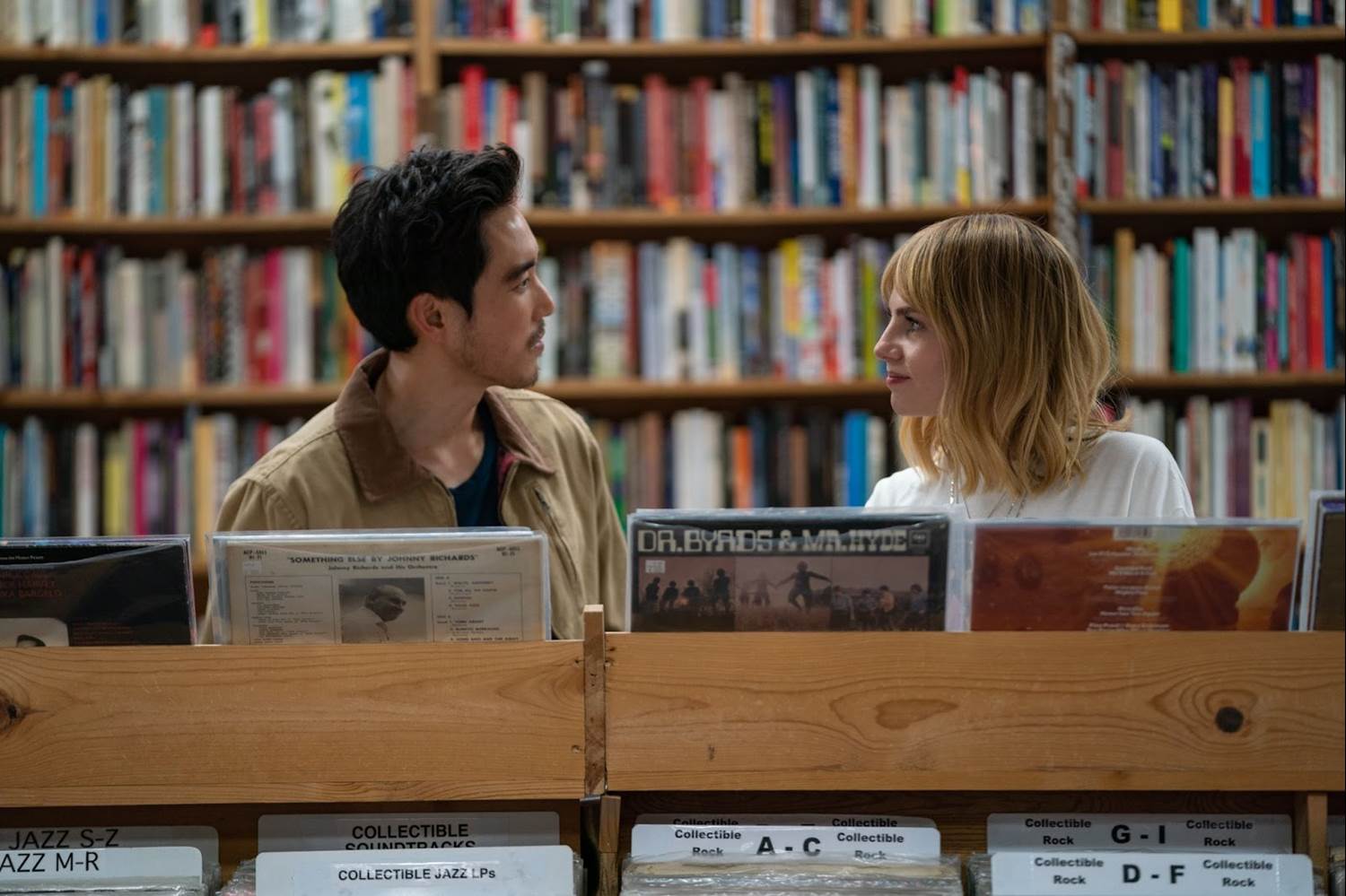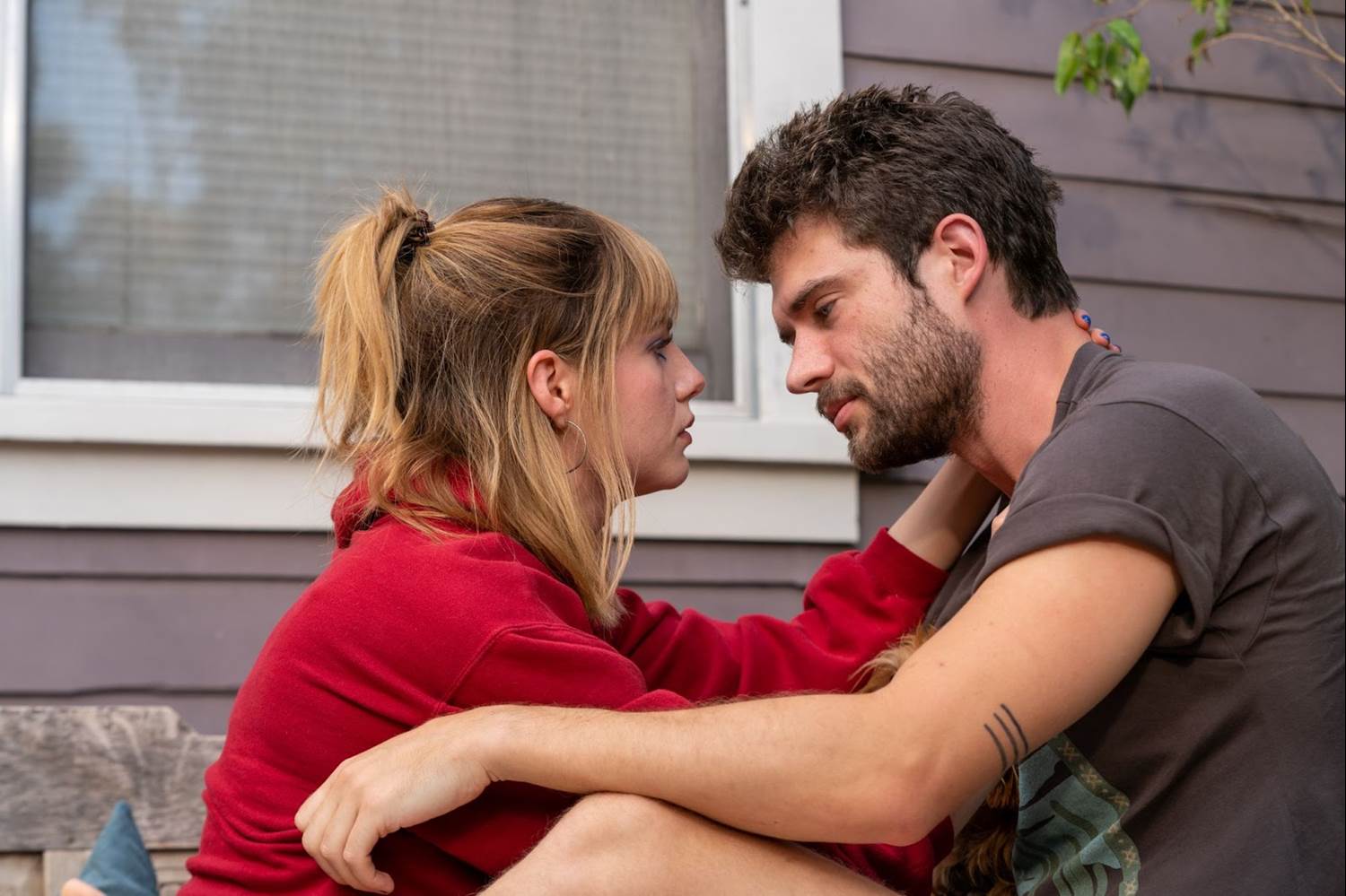Searchlight Pictures’ The Greatest Hits is a tender romantic drama set in a vinyl-obsessed, music-driven world. From writer/director Ned Benson (The Disappearance of Eleanor Rigby trilogy), the film deals with love and loss via a unique time travel device, one that plays better than any description can provide. With a Hulu streaming release date set for April 12th, the film held its SXSW premiere ahead of a limited theatrical run that kicks off on April 5th.
It’s been two years since the car accident that killed Max (David Corenswet, Superman: Legacy), which also injured the head of his long-term girlfriend, Harriet (Lucy Boynton, Chevalier). It’s been hard for Harriet to get over the loss of Max, particularly because she’s been left with a strange affliction – If she hears a song that’s attached to a memory of Max, she has a seizure in the present that sends her back to that moment in time with her dearly departed. She’s seeking one obscure song in particular, one that can send her back to a key moment in time that could change Max’s fate. And so, when Harriet begins to have feelings for a guy, David (Justin H. Min, Beef), she finds herself at an unexpected crossroads she wasn’t prepared for.
The Greatest Hits holds much of the exposition close to its chest, delivering events out of order in a way that keeps the audience engaged as viewers assemble the puzzle that is Harriet. Like most time travel/time loop films, it quickly establishes rules that make sense, and visual queues foreshadow each time jump event. From the glowing needle of a spinning record to Harriet’s world beginning to buzz like a cell phone, Ned Benson delights in the film’s unique time travel aesthetic.
As you’d expect, a film called The Greatest Hits is heavily driven by its soundtrack, which is mostly comprised of deep cuts. There are timeless standards like “Me and My Shadow” (Peggy Lee’s version), the 1990s hit “Friday I’m in Love” (Phoebe Bridgers’ 2018 cover), and a few well-known originals (Nelly Furtado’s career-defining “I’m Like a Bird”). But in a story about characters who are united by their deep-seated love of music, the soundtrack really leans into the obscure, with a remix of Roxy Music’s “To Turn You On” being one of the most significant tracks in the film. The score by Ryan Lott (Everything Everywhere All at Once) has the unenviable task of filling in the space between each signature song that sparks twists in the story, which he achieves with flying colors.
While The Greatest Hits is unquestionably a drama, it occasionally veers into the romantic comedy genre. Through all the time travel moments, we get several meet-cutes. David is a dryly funny character who often breaks the tension and elicits laughter. And the one other lead character, Morris (Austin Crute, Atlanta), is Harriet’s supportive G.B.F. plucked right out of any rom-com. But the film also exercises considerable comedic restraint, particularly through the casting of Retta (Parks and Recreation) as Dr. Evelyn Bartlett, Harriet’s therapist and leader of her grief support group. Retta’s role is neither written nor played for comedy.
Overall, The Greatest Hits remixes elements to create something meaningful and new. All of the performances feel well-researched and thought-through. L.A., as seen through Ned Benson’s nostalgic lens, feels like a different city entirely. It straddles the line between an independent vanguard and something made for the masses, a formula that mostly works and will likely be its secret to success.
I give The Greatest Hits 4 out of 5 record weights.
The Greatest Hits arrives in select theaters on April 5th, streaming on Hulu beginning April 12th.


